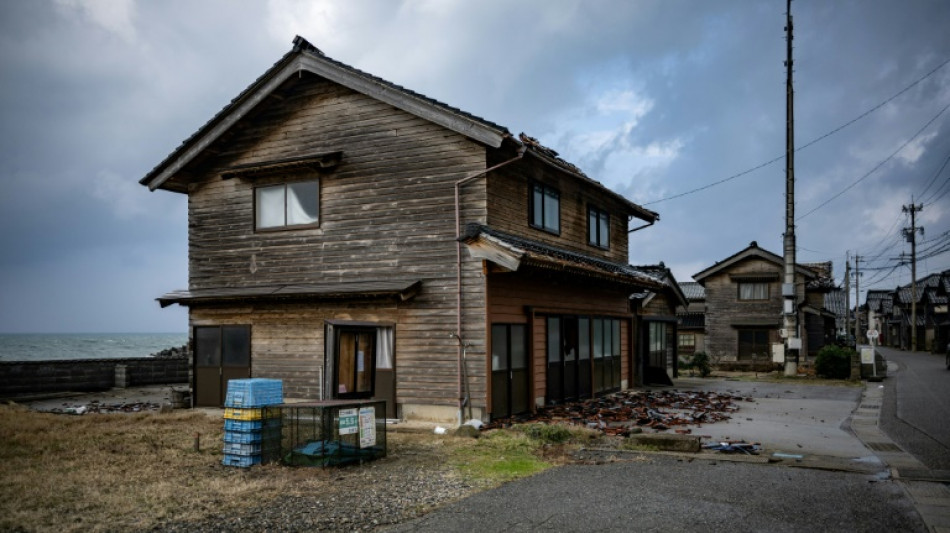
-
 A Friday night concert in Kyiv to 'warm souls'
A Friday night concert in Kyiv to 'warm souls'
-
PSG stunned by rampant Rennes, giving Lens chance to move top

-
 Japan's Totsuka wins Olympic halfpipe thriller as James misses out on gold
Japan's Totsuka wins Olympic halfpipe thriller as James misses out on gold
-
Indian writer Roy pulls out of Berlin Film Festival over Gaza row

-
 Conflicts turning on civilians, warns Red Cross chief
Conflicts turning on civilians, warns Red Cross chief
-
Europe calls for US reset at security talks

-
 Peru leader under investigation for influence peddling
Peru leader under investigation for influence peddling
-
Rising star Mboko sets up Qatar Open final against Muchova

-
 Canada PM to mourn with grieving town, new details emerge on shooter
Canada PM to mourn with grieving town, new details emerge on shooter
-
US waives Venezuela oil sanctions as Trump says expects to visit

-
 NBA star Chris Paul retires at age 40 after 21 seasons
NBA star Chris Paul retires at age 40 after 21 seasons
-
WTO chief urges China to shift on trade surplus

-
 Vonn hoping to return to USA after fourth surgery on broken leg
Vonn hoping to return to USA after fourth surgery on broken leg
-
Trump sending second aircraft carrier to pile pressure on Iran

-
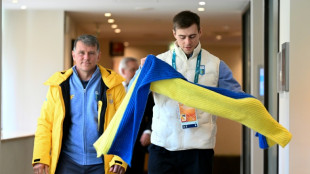 Heraskevych loses Olympics disqualification appeal, Malinin eyes second gold
Heraskevych loses Olympics disqualification appeal, Malinin eyes second gold
-
Mercedes have 'taken a step back': Russell

-
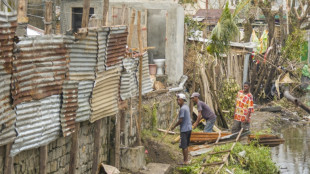 Madagascar cyclone death toll rises to 40, water, power still out
Madagascar cyclone death toll rises to 40, water, power still out
-
Earl says England inspired by last year's Calcutta Cup

-
 USA romp past Dutch in T20 World Cup to keep Super Eight hopes alive
USA romp past Dutch in T20 World Cup to keep Super Eight hopes alive
-
De Minaur scraps past local legend van de Zandschulp

-
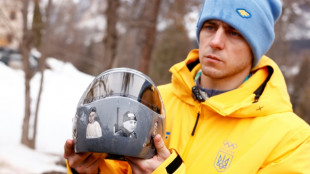 Ukrainian Heraskevych loses appeal against Olympics disqualification
Ukrainian Heraskevych loses appeal against Olympics disqualification
-
Ghana rallies round traditional tunic after foreign mockery

-
 Forest set to hire former Wolves boss Pereira: reports
Forest set to hire former Wolves boss Pereira: reports
-
England rugby captain Itoje slams Ratcliffe's 'ridiculous' immigration comments

-
 Europe should speak to Russia with 'one voice', Putin foe says
Europe should speak to Russia with 'one voice', Putin foe says
-
US Congress impasse over immigration set to trigger partial shutdown

-
 US to deploy new aircraft carrier to Middle East as Trump warns Iran
US to deploy new aircraft carrier to Middle East as Trump warns Iran
-
Ubisoft targets new decade of 'Rainbow 6' with China expansion

-
 Stocks trend lower as AI disruption worries move to fore
Stocks trend lower as AI disruption worries move to fore
-
Spurs set to hire Tudor as interim boss until end of season: reports

-
 International crew en route to space station
International crew en route to space station
-
Man City's Rodri charged over ref rant

-
 Italian biathlete Passler cleared to compete at Olympics despite positive test
Italian biathlete Passler cleared to compete at Olympics despite positive test
-
Macron slams 'antisemitic hydra' as he honours 2006 Jewish murder victim

-
 Tuipulotu warns England to beware 'desperate' Scotland in Six Nations
Tuipulotu warns England to beware 'desperate' Scotland in Six Nations
-
Cash-starved French hospitals ask public to pitch in

-
 US consumer inflation eases more than expected to lowest since May
US consumer inflation eases more than expected to lowest since May
-
Germany's Merz urges US to repair ties with Europe

-
 Europe seeks new 'partnership' with US at security gathering
Europe seeks new 'partnership' with US at security gathering
-
Fresh water leak adds to Louvre museum woes

-
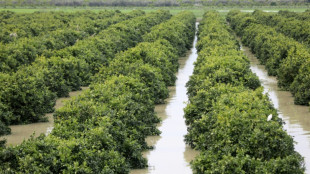 Floods wreak havoc in Morocco farmlands after severe drought
Floods wreak havoc in Morocco farmlands after severe drought
-
Russia, Ukraine to hold talks in Geneva on February 17-18
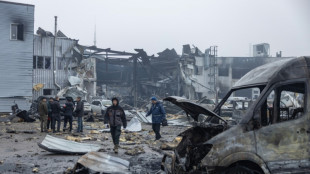
-
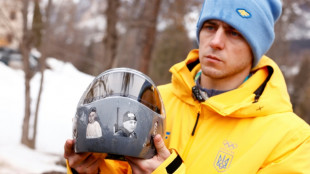 Ukraine's Heraskevych hopes 'truth will prevail' in Olympics appeal
Ukraine's Heraskevych hopes 'truth will prevail' in Olympics appeal
-
Dumplings and work stress as Chinese rush home for Lunar New Year
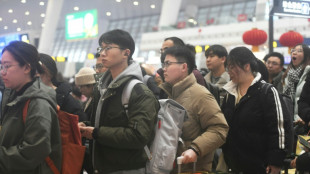
-
 Macron denounces 'antisemitic hydra' as he honours 2006 Jewish murder victim
Macron denounces 'antisemitic hydra' as he honours 2006 Jewish murder victim
-
India-Pakistan: Hottest ticket in cricket sparks T20 World Cup fever

-
 Cross-country king Klaebo equals Winter Olympics record with eighth gold
Cross-country king Klaebo equals Winter Olympics record with eighth gold
-
Ukraine's Heraskevych appeals to CAS over Olympic ban as Malinin eyes second gold

-
 Stocks mostly drop after Wall Street slide
Stocks mostly drop after Wall Street slide
-
Sophie Adenot, the second French woman to fly to space


Still standing: unique houses survive quake in Japan village
The New Year's Day earthquake demolished wooden buildings all across Japan's Noto Peninsula but thanks to decades-old smart architecture, one small fishing village stood strong.
A few roof tiles came loose but not one of around 100 structures in windswept Akasaki, on the stick of land's western coast, collapsed in the magnitude 7.5 quake whose epicentre was just a few kilometres (miles) away.
Masaki Sato drove all night from his home 300 kilometres (190 miles) away in Tokyo after the quake to check on the 85-year-old house that he has owned since 2017 and runs as a summer B&B.
"The house stands on a very narrow lot of land, and the building has many small rooms, with many columns" that make it stronger, the 43-year-old told AFP.
To withstand the harsh rain, snow and ocean winds buffeting off the Sea of Japan, Sato's house and most others in Akasaki have few glass windows.
Their exterior walls are made from sturdy wooden slats, layered horizontally. The structure is supported by thick beams criss-crossing the ceiling.
The earthquake and its many aftershocks killed at least 161 people, and 103 others are still missing, authorities said on Monday.
But there were no casualties in the tight-knit village.
Even tsunami waves triggered by the earthquake didn't reach the houses, which are built on land slightly uphill from concrete tetrapods that protect them from the sea.
At Sato's place, ceramic dishes smashed, appliances toppled and a recently added wooden sliding door broke, leaving debris strewn across the floor.
But that was it.
"I felt so encouraged, because the village was still there standing," Sato said.
"I think it's thanks to the design of the houses," he added, sitting at the dusty but still solid kitchen counter in his guest house.
- 'Windshield' -
The same lucky outcome was seen around the village, where "the design of the houses is more or less the same," said resident Seiya Shinagawa, a retired fisherman.
"Traditionally there's a shed on the coast as a windshield, with a narrow main house behind it," the 78-year-old said.
This setup is a remnant of the days when each fisherman would launch their boats out of their shed directly to the sea, Shinagawa said.
From around the 1920s, the community's fishermen opted for more lucrative deep-sea fishing far away from home, sometimes hauling in small fortunes for their catch.
But when a fire broke out and destroyed a significant part of the village in the late 1930s, people rebuilt the houses in a unified and stronger design.
- Demographic threat -
Now despite its resilient character, the village faces a problem that is widespread in Japan: a severely ageing population.
Most people in Akasaki are over 65, with many living alone, including 74-year-old resident Akiyo Wakasa.
"My neighbour and their next-door neighbour also live alone," she said.
According to Wakasa, part of the problem is that "fixing houses costs money".
"I'm not sure how many people here actually think it would be worth fixing the house and continuing to live here when they have nobody to hand it down to," she explained.
For Sato, an IT firm employee who runs a real-estate renovation business on the side, seeing Akasaki entering a slow decline is unbearable.
The area is not recognised by the government as a cultural asset, but it's a place where people lead a simple, old-fashioned lifestyle, he said.
And when there's no one to live in a house, it's torn down -- eroding the village's charm, according to Sato.
"Akasaki, which has preserved a unique and uniform housing design... is losing its scenic appearance."
To save Akasaki's special look, Sato has purchased five of the houses and sheds himself, and wants eventually to open some cafes and restaurants there.
"The village is too precious to lose," he said.
O.Norris--AMWN

